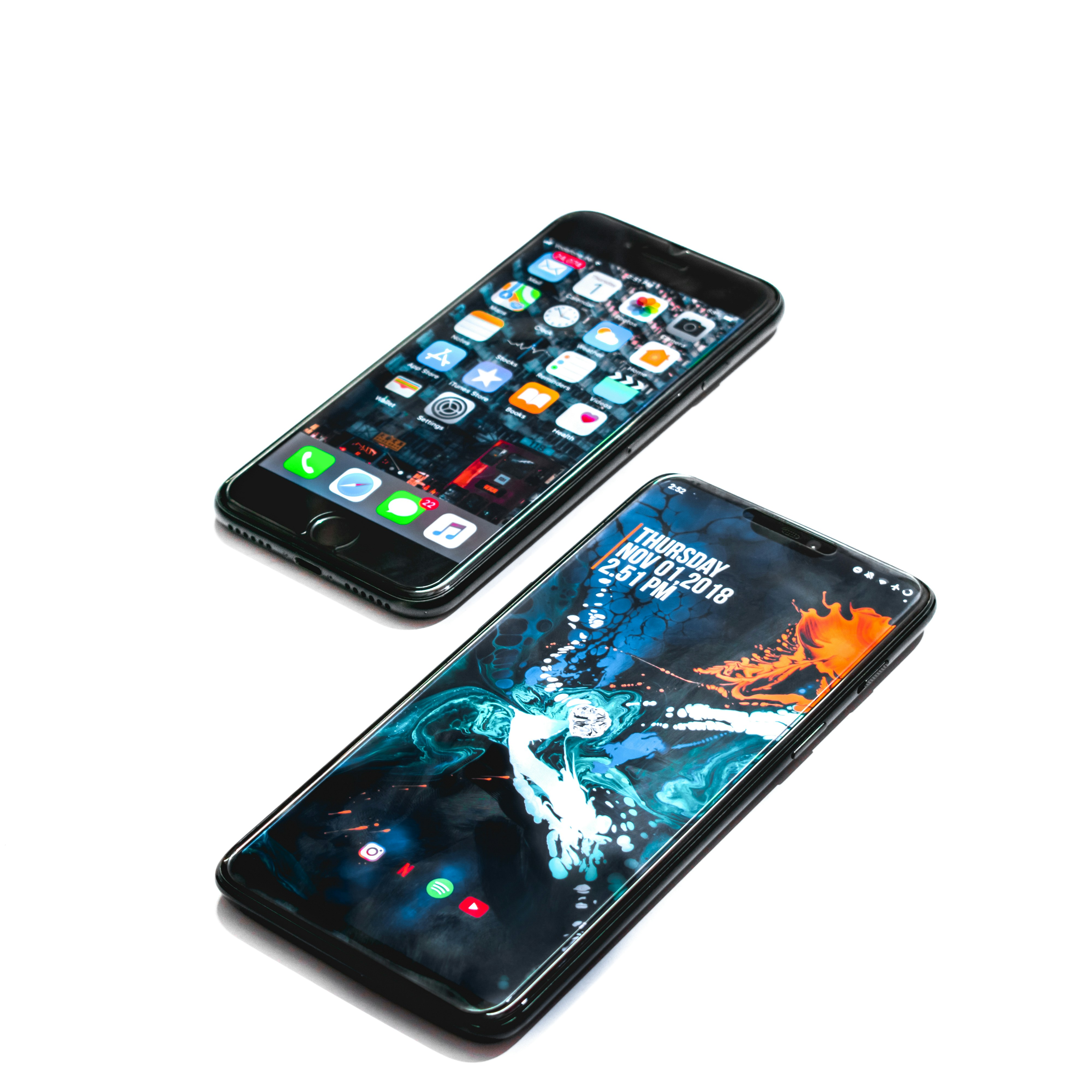What is Flutter Application Development? (Pros and Cons)
If you’ve ever used apps like eBay, iRobot, and Google Pay on your iPhone or Android device, then you’ve experienced Flutter application development....
6 min read
Written by Shawn Parrotte, Feb 9, 2017

If you’re looking to build a mobile asset for your company, you’ll need to decide whether you should opt for a native mobile app or a mobile responsive website.
Each has their merits, of course. But, when bringing your project to different developers, especially ones that specialize in one or the other, you may find out that one tells you a mobile app is the way to go and others suggest a mobile responsive website is what’s best.
In the development community, the debate has been going on for quite a long time. Like some kind of mobile war, factions of developers argue over the benefits of their chosen platform and are very adamant about its superiority.
One side claims “mobile apps are dead!”, pointing out that web traffic on mobile is now greater than it is on desktop. “Responsive websites will never be smooth!” the other camp may shout, noting how connection speeds dictate the ease of use (or not) of mobile responsive websites.
And a separate group is hacking away, attempting to create cutting edge frameworks that bridge the two. These mobile-web-app hybrids are a completely different beast altogether, deserving of an entirely separate article, and are outside of the scope of our most common projects.
I may be exaggerating a bit, but if you’ve been focused on building your business, you may not have been aware of the latest developments in the field. We’ve taken the middle road in this debate, as a majority of sane developers have over the years, arguing that the answer to the question of “which mobile solution should I build for my business?” is really “it depends”.
It depends on a number of factors that we’ll get into. However, the two broad categories that determine which to go with are:
So, in this post, I want to outline the main differences (and similarities) between mobile apps and mobile responsive websites. I’ll elaborate on how the two factors above may affect your decision, so you can understand which one is best for you and for your customers.
When we only accessed the web from desktop computers, websites were built to be “one size- fits all”. Yes, sometimes you had to scroll horizontally if your monitor wasn’t a sufficient size, but most savvy webmasters were aware of this and would build their sites using a fixed width that most monitors could render.
But these days, we can access the web from a myriad of devices. A majority of households have a desktop, tablet, and smartphone that they search the web from. So websites now have to be able to display their content to fit each screen size, and do it well. In fact, an average home in the US has 10 active connected devices. That means that modern websites need to respond to each screen’s various dimensions and orientations.
The first solution that companies opted for was to build out a separate version of a website created solely for mobile users. You’ll see this whenever you’re redirected to an “m.website.com” site, this is a different subdomain with a unique frontend experience specifically designed for mobile devices.
Now, since the amount of screen sizes keeps increasing, building a unique website for each one is simply unmanageable. Instead, browsers and developers have both come up with solutions that, when combined, make building something that works across devices much easier.
Native applications are exactly like programs that run on your computer, except they’re on your smartphone. These generally have more complex functionality that would benefit from a direct connection to a device’s processing power (instead of passing through the browser, which is itself a native app).
Many of them can function perfectly fine offline. Mobile games, productivity tools, music apps, photography apps, and others fit into this category, though many of these many have in-app purchases, which would require some kind of connection. Most apps, though, especially social media apps, absolutely need to be connected to the internet to function properly.
Unlike responsive websites, native apps need to be built and potentially rebuilt for each specific platform. iOS uses the Swift programming language. Android uses Java. Windows phones require Visual Basic or C#. The advantage of tapping directly into the hardware is paired with the challenge of coding essentially the same app for each type of device (and potentially each sized device too).
Available anywhere – Websites can be accessed wherever there’s a connection to the internet and a device that supports a web browser. You can easily access a mobile website whenever you decide you want to summon it.
Device Agnostic – Not only can you access a website wherever you are, without having to download anything, you can also access it from any device, unlike apps, because browsers work with practically every mobile, tablet, and desktop situation.
Instantly Updated – Mobile websites also have the advantage of being able to update at any time and users instantly seeing the end result of the update. Because every device is accessing the same servers, you won’t have to do any extra work beyond testing your updates on various browsers before you ship it. Apps, on the other hand, need to be manually submitted to the app store for review before updating.
Findability – Websites are easily findable and accessible through search engines, links, and sharing URLs. App stores have notoriously bad search functionality. Apple claims to be working on the user experience of their App Store, but right now the searching and finding of specific apps is flawed at best.
Can’t Be Deleted – Websites are always accessible whenever you need them. While some people may feel the unrelenting desire to delete entire websites, it’s just not possible. With apps, you need to download them, and if you get bored of the experience or it’s no longer useful, you need to delete it to save space or clean up your home screen. Some may find this a hassle.
Less Expensive – Websites, in general, are less expensive to build and maintain. Even if you have a big database and need to render thousands of products, a website is still going to be cheaper than opting for a native application. It just takes more hours to program an app, there’s no getting around it.
Web Apps Are Getting Better – Complex web applications are becoming faster and designers are creating better user experiences for mobile users. Again, developers are working on frameworks that bridge the web/native divide so who knows how much longer these two paradigms will really be separate.
Fast and Easy to Use – Native apps have a much better user experience overall because they are designed for the device and connect directly to its processing power. There’s no need to rerender the whole page when you want to move to another screen, you just tap, swipe, or scroll and it’s a delight to use because everything is buttery smooth.
Complex Calculations – Not only is the user experience better in apps, but smartphones have incredible processing power that you can use to your advantage. If you’re running a business application you can run the numbers any which way you need, or if your app is graphic intensive, you can render whatever flashy animations you can imagine.
Personalization – Apps, if you let them, can take into account your past behavior, common uses, and your personal preferences to create custom experiences for you. Some websites can do the same, but with apps, you don’t need to login or they can run in the background for you.
Native Functionality – It goes without saying that with native apps you get native functionality. This means you have direct access to all the phone’s capabilities. Push notifications, locations data, and camera access are just a slice of what you can do with native support. A sophisticated mobile app can use all of these functions to create an integrated and engaging user experience.
Offline Access – Although apps need to be downloaded from the internet, many of them have offline support. Even streaming services like Spotify and Netflix support offline access. So unlike websites, it’s not absolutely critical that you’re hooked up to wifi to get the full experience.
Easy Payments – While about 30% of online purchases are from mobile websites, in general, the experience isn’t that smooth or easy. In-app purchases, mobile wallet integrations, and mobile-based loyalty programs, in addition to a better user experience overall, make buying from a mobile app significantly better than from a mobile website.
Brand and Mindshare – Simply the fact that you have an app shows that you’re serious about keeping up with changing technology. Because not everyone has an app it sets you apart from your web-only peers. This can be an asset for your brand and, if you make a stunning app, a way to make you top of mind in your category.
So as you can see, there are advantages to each. But the only real question you need to answer is: does your business need an app?
Needless to say, people expect any business to have a website that is accessible from a mobile device. So if you don’t opt for an app you’ll obviously want a responsive site. However, if you do opt for an app, you’ll also need to build out a responsive website for both marketing purposes and for SEO purposes. So really, the question isn’t so much either/or, but one (responsive site) or both (responsive site + app).
Think hard about what advantages having an app would give you and if you want to invest in one. Having an app is a valuable asset for your business. And, really, if your app is your main revenue driver then it is the MAIN asset of your business. If you have any questions about which you should build then don’t hesitate to reach out to us at hello@designli.co. We’d be happy to help you assess your situation and guide you on your mobile journey.
Subscribe to our newsletter.

If you’ve ever used apps like eBay, iRobot, and Google Pay on your iPhone or Android device, then you’ve experienced Flutter application development....

Creating an app for business use can increase productivity and improve consistency for greater quality control and customer satisfaction. But...

What if you could build a single app for multiple platforms and cut down your development time and costs all at once? That’s the allure of...
Post
Share